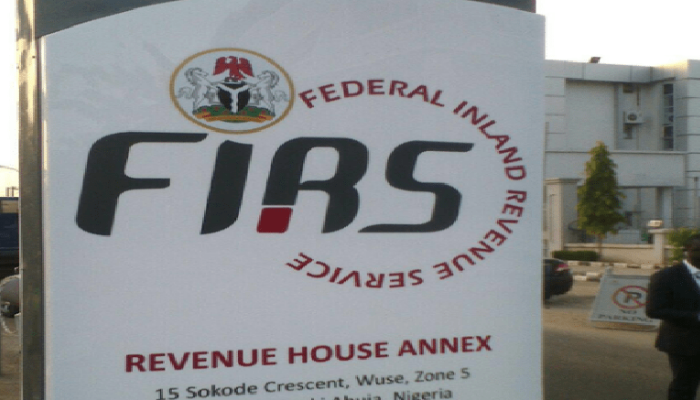
Nigerians are likely going to pay more taxes in the coming year as federal government plans to increase taxes in order to tackle revenue shortfalls. This is according to a statement issued by the Minister of Finance, Mrs. Zainab Ahmed, who said that new tariffs and levies would be introduced in 2022 to stimulate Nigeria’s economic growth.
Mrs. Ahmed made this known on Monday while addressing some stakeholders at a public hearing on the 2021 Finance Bill organized by the House of Representatives Committee on Finance in Abuja.
According to Vanguard, she said that a couple of reforms and amendments had been recommended in the draft 2021 Finance amendment bill, adding that more reforms would be introduced by the middle of 2022.
Register for Tekedia Mini-MBA edition 19 (Feb 9 – May 2, 2026): big discounts for early bird.
Tekedia AI in Business Masterclass opens registrations.
Join Tekedia Capital Syndicate and co-invest in great global startups.
Register for Tekedia AI Lab: From Technical Design to Deployment (next edition begins Jan 24 2026).
She explained that while modest changes had been proposed, more fiscal reforms were in view as the ministry could not take all the proposals collected from stakeholders.
“Our aspiration is to do a midterm review with a possibility of another Finance Bill in mid-year 2022 to bring in more amendments. There are ongoing cases in court against the Federal Government on the Value Added Tax (VAT) and stamp duties, which was why the ministry stayed off those areas.
“We prepared this draft bill along five reform areas, the first domestic revenue mobilization, the second is tax administration and legislative drafting, third is International taxation, fourth is financial sector reforms and tax equity and fifth is improving public financial management reform.
“The provision in the draft bill is proposing to amend the Capital Gains Tax Act, Company Income Tax, FIRS Establishment Act, Personal Income Tax, Stamp Duties Act and Tertiary Education Act, Value Added Tax, Insurance Police Trust Fund and the Fiscal Responsibility Act.
“This is to amend the Police Trust Fund Act and the Nigerian Trust Fund Acts, the purpose is to empower the FIRS to collect the Nigerian trust fund levies on companies on behalf of the fund itself.
“Currently, because there is no such provision, the FIRS is unable to start collecting on behalf of the fund. Also, it is to streamline the tax and the levy collection from the Nigerian companies in line with Mr. President’s administration ease of doing business policy.
“So we do not have NASENI going out to collect that tax, the FIRS will collect on their behalf during their collection process and it will be passed through to them,” she said.
Ahmed said that the bill was a product of the President Muhmmadu Buhari’s commitment made while presenting the 2022 budget to the joint session of the National Assembly on October 8, 2021, explaining that the ministry had worked with relevant stakeholders and Fiscal Policy Reform Committee to draft the 2021 Finance bill.
Since the past six years, Nigeria’s financial crisis has spiraled, slipping out of government’s control. With oil revenue, which is Nigeria’s main source of Gross Domestic Product (GDP), depleted, the country has taken to borrowing to fund its budgetary allocation. But the bloating debt burden has become a cause of major concern to Nigerians, as the loans taken by the government is believed to not commiserate with Nigeria’s infrastructural development and economic growth.
Last week, there was a report that federal workers would not be paid their December salaries due to revenue shortfalls. The Debt Management Office (DMO) said Nigeria’s total public debt has risen to N35,465 trillion as of June 30 2021. This means, currently, the federal government is spending over 98% of its revenue on debt servicing.
Seeking a way out of this predicament, President Buhari’s administration has taken to tax increment, starting with the upward review of Value Added Tax and the introduction of Stamp Duty tax. The new plan to amend Financial Bill 2020, which will include reviewing Capital Gains Tax Act, Company Income Tax, FIRS Establishment Act, Personal Income Tax, Stamp Duties Act and Tertiary Education Act and Value Added Tax upward, indicates that apart from borrowing, taxation seems to be Nigeria’s only alternative for revenue generation – but it may hamper Nigeria’s economic recovery.
In the wake of covid outbreak, many countries acted to limit the resultant economic hardship by providing liquidity support to businesses to help them stay afloat, and providing income support to vulnerable households.
Measures taken include extending deadlines for tax filing, the deferral of tax payments, the provision of faster tax refunds and tax exemptions. These measures were recommended for every country, including developing countries like Nigeria, hardly hit by covid’s economic downturn.
“Tax policy should continue to focus on limiting hardship while maintaining the ability for a quick rebound …. The best way to boost tax revenue will be to support solid growth, including through sufficiently strong and sustained stimulus,” the OECD said in its policy response to covid-19.
Nigeria is still grappling with meagre disposable income crisis buoyed by struggling businesses and high unemployment rate. Thus, government’s plan to increase taxes is seen as adding nails to the coffin of its ailing economy.



